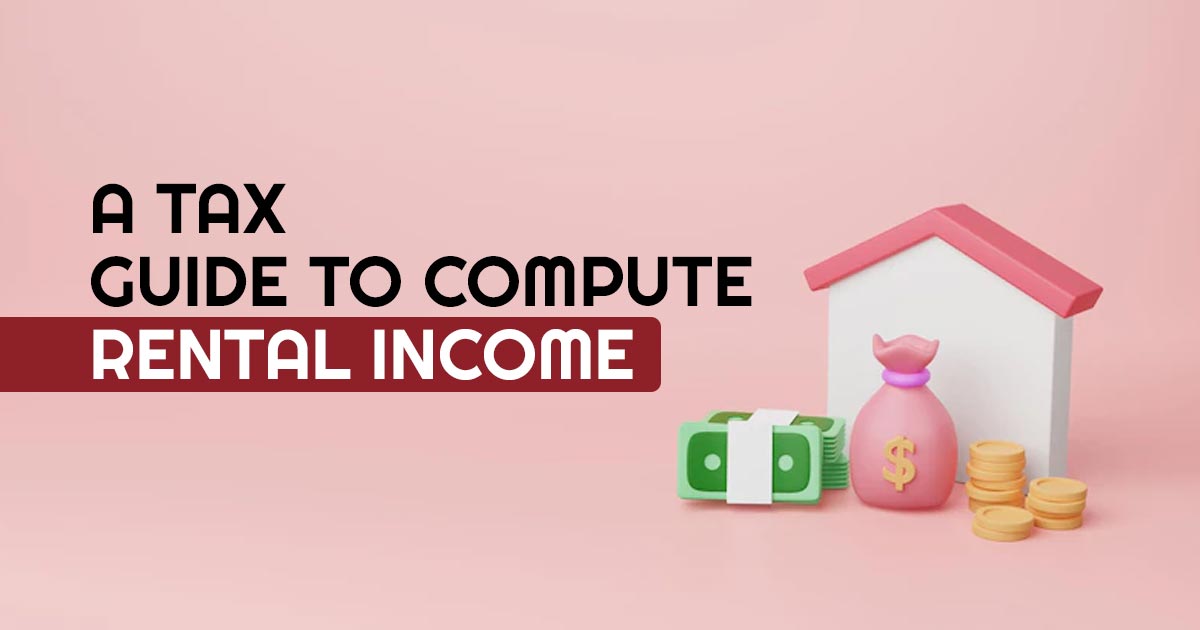
Investing in the property would be defined as a safe choice for regular income via renting. But on the income made from rent, there are some tax implications. The rental income of the landlord would be levied to tax under the subjected tax slab rates beneath the head income via house property. The article describes the method of tax taken on the income from rent and its computation.
Using the Net Annual Value of the property, the slab rate applicable to the taxpayer is applied to rental income.
An assessee might claim for up to 2 houses as self-occupied properties (SOP) for the yearly value that is recognized as NIL and as per that no tax shall be levied on the specific property.
Any type of property excluding two SOPs shall be treated to be let out in which the tax is levied to be paid considering the reasonable expected rent as Gross Annual value.
Standard Deduction on Tax Property
A standard deduction of 30% on net asset value (gross rent received ‘less’ property taxes or municipal taxes paid by him) can be taken by the individual landlord to attain the net income via house and property.
For non-resident Indians, the Standard deduction are be permitted.
Tax on Residential Property Bought Via Home Loan
When the residential property has been bought on the loan and then the same has been provided on rent after that then the landlord could claim for the deduction against the interest furnished on the home loan of up to Rs 2 lakh against the interest furnished on the home loan. Under Section 80C of the Income Tax Act, the principal amount of the EMI filed for the year would be permitted as a deduction.
“The maximum amount that can be claimed is up to INR 1.5 Lakh. However, while paying taxes on rental income at the time of filing the income tax return, a landlord should keep documents like rent agreement and property deed handy for the future as he/she can use them as proof if the tax department sends any inquiry related to the rental income,” stated by the tax expert.
Procedure to Compute the Tax on the Rental Income
The below-mentioned process is to compute the tax on the rental income:
- Step 1: Calculate the reasonable expected rent of the property. The reasonable expected rent is more than the Municipal value of the property. When the property would get covered under the rent control act, the reasonable expected rent does not be more than the standard rent.
- Step 2: Calculate the Actual rent of the property.
- Step 3: Calculate the Gross annual value (Higher than the reasonable expected rent or actual rent as computed in Step 1 and Step 2 above).
- Step 4: By lessening the amount of municipal taxes furnished by the assessee in the year, come to the net annual value. Merely municipal taxes file through the owner in the year could get deducted therefore the municipal taxes due however being furnished for the year could not be deducted.
- Step 5: The assessee could claim the deduction under section 24(a) with a 30% rate of the Net Annual Value.
- Step 6: under section 24(b) the deduction could be avail on the basis of the interest on the borrowed capital for the purpose of the purchase construction, repair, renewal, or property reconstruction. For the concern of let-out property, no threshold would be there on the quantum of interest that is enabled to get claimed as a tax deduction under section 24(b). But for the concern of a self-occupied property, the limit is Rs. 2,00,000 or Rs. 30,000 as per distinct various factors.
- Step 7: The amount got post 6th Step is the amount levied to tax under the head ‘House property.
| Facts | Charge (INR) |
|---|---|
| Appropriate Expected Rent – (i) | XX |
| Basic Rent – (ii) | XX |
| Gross Annual Value (Higher than (i) or (ii)) | XX |
| Less:- Municipal Taxes Paid During the Year | (XX) |
| Net Annual Value | XX |
| Less:- Tax Deduction Under Section 24 | XX |
| Tax Deduction Under Section 24(a) @ 30% of Net Annual Value (Standard Tax Deduction) | (XX) |
| Tax Deduction Under Section 24(b) on Account of Interest on Borrowed Capital | (XX) |
| House Property Income | XX |
When the Gross Annual Value (GAV) is below Rs 2.5 lakh there is no need to pay tax on the rental income.
Read Also: Tax Benefits & Standard Deductions on Rental Income for Owners
Tax on rental income is calculated after deducting municipal taxes, standard deductions, and home loan interest. An individual does not have to pay tax on rental income if the GAV of the property is less than Rs 2.5 lakh. A person might have to pay taxes if rental income is their primary source of income.









